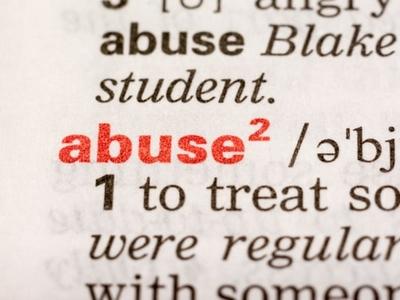4 Examples of Domestic Violence and How Illinois Law Protects Victims
 The state of Illinois takes domestic violence charges seriously and takes serious action against perpetrators. Before and during the divorce process, victims have the right to get protection orders to safeguard themselves and their families. But what constitutes abuse? This article will discuss what that entails and how victims are protected in the state.
The state of Illinois takes domestic violence charges seriously and takes serious action against perpetrators. Before and during the divorce process, victims have the right to get protection orders to safeguard themselves and their families. But what constitutes abuse? This article will discuss what that entails and how victims are protected in the state.
What Constitutes Domestic Violence?
In Illinois, domestic violence is defined as abuse that includes:
-
Striking (such as hitting, punching, biting, etc.)
-
Harassment (physical or mental)
-
Threatening (threats of violence, for example)
-
Interfering with personal liberty (such as locking the victim inside the house, taking away their keys, or restricting liberal movement)
However, abuse does not include the reasonable discipline of a child by a parent or legal guardian.
Who Qualifies For An Order Of Protection?
You can petition the court for an Emergency Order of Protection if you are being abused. In the state of Illinois, the following people are eligible for an order of protection:
-
An individual who is abused by family or household members
-
A minor child or dependent adult who is in the care of an abusive person
-
A high-risk adult who has disabilities is neglected or exploited by household or family members
-
An individual who is living or works in a private home or public shelter that houses an abused member of the family or household
This also includes any individuals who are abused by the household or family members of a child, such as a foster parent, a legal guardian, and a prospective adoptive parent.
How Illinois Law Protects Abuse Victims at Work
In Illinois, employers with more than 15 employees must comply with the Victim Economic Security and Safety Act (VESSA). As per the Act, employees who are victims of domestic violence and wish to take unpaid leaves to address their issues cannot be demoted, threatened, terminated, or negatively acted against. In other words, employers cannot take any negative action against employees who must heal from injuries, visit a doctor, file charges against their abuser, attend court, etc.
However, employees with at least 15 employees but less than 50 may only give eight weeks of unpaid leaves, while those with at least 50 have to permit 12 weeks at least. Additionally, they have the right to request documentation supporting their employee's reasons for their leaves and give them at least 48 hours to produce the paperwork.
As per VESSA, employers must also provide reasonable accommodation for employees at risk of domestic violence. This can include installing locks, implementing new safety procedures, changing their office phone number, etc. If domestic violence occurs in the workplace, employers are legally obligated to file a police report and aid victims with other relevant documentation.
Contact A DuPage County Domestic Violence Attorney Today!
If you are a victim of domestic abuse or know someone who needs legal representation against their abusers, contact our DuPage County domestic violence attorneys at Pesce Law Group, P.C. by dialing 630-352-2240. We meet with our clients first to understand their situation before formulating a legal strategy and also aid them through the divorce process if required.
Sources:
https://www.ojp.gov/pdffiles1/Digitization/154626NCJRS.pdf
https://www.ilga.gov/legislation/ilcs/ilcs5.asp?ActID=2100&ChapterID=59











 630-352-2240
630-352-2240



